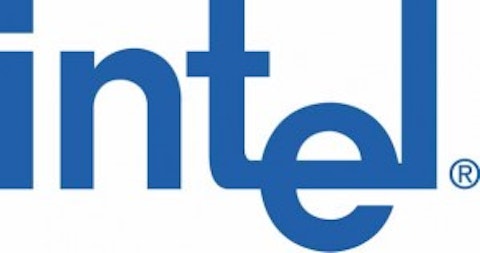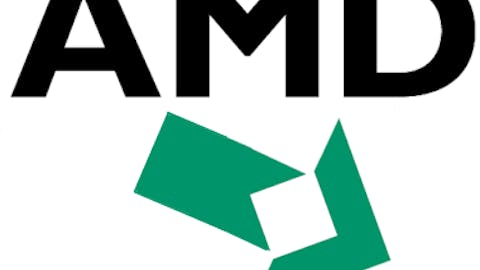The computer industry is under huge pressure. When the Apple iPad debuted, the digital world took off on a different path. During the last decade, Intel Corporation (NASDAQ:INTC) and Advanced Micro Devices, Inc. (NYSE:AMD) were kings in regard to processor design and marketing for personal computers. While both were good, Intel Corporation (NASDAQ:INTC) offered better solutions than Advanced Micro Devices, Inc. (NYSE:AMD) in terms of processing speed, though this came with a premium cost. Advanced Micro Devices, Inc. (NYSE:AMD) managed to survive the war because it offered budget chips that were nonetheless good performers.

Shifts happen…
Now, everything has changed. Customers have moved towards tablets because they are more convenient for general-purpose tasks such as browsing the web, reading, and even editing files. The demand for PCs is weakening, and Intel Corporation (NASDAQ:INTC) and Advanced Micro Devices, Inc. (NYSE:AMD) have struggled to maintain their profitable status.
Intel Corporation (NASDAQ:INTC) has reported declining revenues and net income. Its revenue for the three months ending on June 29th fell by 5% to $12.8 billion. Its net income decreased by 30% to $2 billion, or $0.39 per share, compared to $2.89 billion, or $0.54 per share for the same quarter a year ago.
There has been a downward path in revenues from Intel Corporation (NASDAQ:INTC) for several quarters now. The company stated that notebook platform volumes decreased by 7% from the second quarter of 2012 to the second quarter of 2013. Furthermore, notebook prices fell by 3%. I fear these metrics will continue to drop in the near future as the iPad and other tablets such as those from Samsung grow cheaper as production costs decline.
Desktop processors sales may not be as affected as notebook processors. In general, desktop computers are able to perform many more tasks than tablets at higher processing speeds. Intel Corporation (NASDAQ:INTC) stated that desktop platform volumes decreased by 5%, and average selling prices declined by 6%.
With weakening PC sales, Intel’s business is maimed. Several analysts estimate that the popularity of tablets will increase in the near future. For this reason, investors should bail out of Intel and look for other investment opportunities. Intel should diversify and aim for other markets before investors consider committing their money in the chip-maker.
Intel is trying to diversity to the tablet industry. A benchmark has appeared online measuring the performance of the Intel Atom “Bay Trail” chip. Evidence suggests that it is 30% faster than the fastest ARM chip on the market, the Qualcomm‘s Snapdragon 800. The chip is due to come out in the second half of 2013, probably in the fall. Therefore, investors may want to wait until the first quarter of 2014 to determine how well the chip was received by customers before investing in Intel.
If hardware is bad, software may also be bad
Intel’s earnings report should sound an alarm for Microsoft Corporation (NASDAQ:MSFT) investors. The vast majority of the PCs sold use Microsoft Corporation (NASDAQ:MSFT) Windows as an operating system. If the PC sales slowed down by 5% in this quarter, chances are that Microsoft Corporation (NASDAQ:MSFT)’s revenues will come short in the following quarters.
The software giant is trying to offset the decline in PC sales by releasing updated versions of its Windows product. There is strong evidence that Windows 8 was not accepted as anticipated, however. According to several websites that track the user operating systems, the percentage of users who have adopted Windows 8 is significantly lower for the same period compared to Windows 7.
As a personal anecdote, last month I went to Best Buy to buy a laptop to continue my writing hobby. I must say that I was lucky enough to find a Windows 7 laptop. Windows 8 seems to be complicated enough for me to be scared of. Perhaps I will migrate to Windows 8 eventually, but users like me have been accustomed to the same platform since Windows 95. A sudden jump to a completely different platform is not easy.





